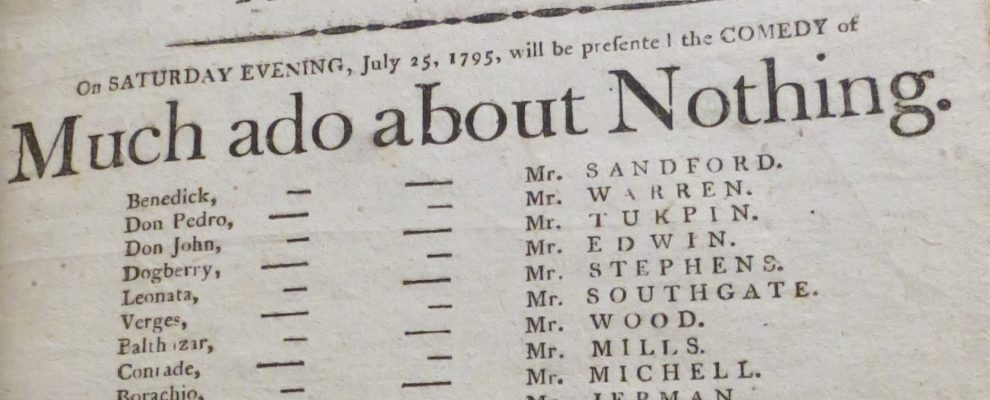The eighteenth century saw the flourishing of theatre as a popular pastime and many theatres were enlarged and new playhouses built in London and the provinces. York could boast a long established theatre tradition, from ‘strolling-players’ who performed productions at St Anthony’s Hall and later at Market Hall, to Thomas Keregan’s company who performed at Lord Ingram’s mansion in Minster Yard, and from 1744 at the Theatre Royal. Whilst theatre had always been a key component of York’s entertainment scene, under the stewardship of Tate Wilkinson from 1766, the Theatre Royal enjoyed national recognition for its productions and received a royal patent in 1769.
The theatre attracted a wide range of social classes and economic groups. Prices for seats varied accordingly, with boxes being the most expensive, followed by the pit, first gallery and second gallery. It was also possible to pay a little extra to sit on the stage itself. Dramatists were highly conscious of the need to appeal simultaneously to the different constituencies that populated pit, boxes and galleries. As such, theatres would provide a whole evening of entertainment: a bill usually consisting of a main piece (either a comedy of tragedy), followed by a short afterpiece, which was usually a farce. In addition there could also be musical, dance or variety acts, some of which may even have occurred between the acts of the main play.
Despite the wealth of entertainments provided, theatre audiences could often be rude, noisy and dangerous. Alcohol and food was consumed in great quantity, while people frequently arrived and left throughout the duration of the performance. Audiences chatted amongst themselves and sometimes pelted actors with rotten fruit and vegetables. James Boswell described mooing like a cow during one particularly bad play, to the great amusement of his companions. Rioting at theatres was also not uncommon. The Drury Lane theatre in London, for example, was destroyed by rioting on six occasions during the century.

Name: Fairfax House
Source: In Pursuit of Pleasure: Entertaining Georgian Polite Society (Fairfax House, 2016)
